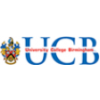Snabbfakta
-
- London
Ansök senast: 2025-02-15
Postdoctoral Research Associate in Bioengineering: Microfluidics, Cancer Metastasis, Extracellular Vesicles & Shearosomes
Imperial College London is a world-leading science-focused institution with the greatest concentration of high-impact research of any major UK university. The Faculty of Engineering, consistently rated among the best in the world, is made up of 10 academic departments, including the Department of Bioengineering. In the 2021 Research Excellence Framework, Imperial scored #1 across the UK in overall output scores and Bioengineering scored #1 in in its category of Bioengineering/Biomedical Engineering.
Extracellular vesicles (EVs) are lipid bilayer sacs generated from cells that contain distinct surface markers and payload that make them useful in the clinic (. for diagnosis, tumour stratification and therapy monitoring) as well as key regulators of metastasis (. premetastatic niche formation). This project is generously funded by Cancer Research UK Convergent Science Centre () to develop and use microfluidic devices to advance both their clinical utility and our understanding of their role in cancer metastasis.
Clinical utility: Most physical-based separation mechanisms rely on the difference in size between EVs and cellular elements found in blood. While the discrimination of small EVs (sEVs /articles/s41598-017-01150-3.
Cancer metastasis: Using microfluidic models of human capillary bifurcations, our group has discovered a new subclass of large extracellular vesicles that are shed from circulating tumour cells under shear in capillary bifurcations (). We have named these EVs “shearosomes” since they require shear stress for their biogenesis. Shearosomes exhibited functions characteristic of previously identified EVs including cell-directed internalization by endothelial and immune cells, and intercellular communication abilities such as disruption of endothelial barrier integrity, polarization of monocytes into M2 tumor-promoting macrophages and interactions between endothelial and immune cells. What is not known is the extent that shearosomes reprogram the premetastatic niche and influence metastatic progression. The objective of this aim is to develop and use high throughput microfluidic capillary devices to produce large numbers of these shearosomes from tumour cells. We will then use these shearosomes to investigate the extent and mechanisms by which they form the premetastatic niche in both microfluidic and animal models.
This is a unique opportunity for interdisciplinary research at the interface of microfluidics, cancer and potentially cancer immunotherapy. The successful candidate will join a dynamic collaborative team of researchers in the Au Lab () alongside collaborators at Imperial and the Institute of Cancer Research.
We are seeking a skilled individual who is self-motivated, highly organised and has relevant wet lab experience. The post holder will work with wide range of staff, students, and academics and will have the opportunity to present at leading international conferences. Good communication and team working skills are essential. Cell culture, microfabrication, CAD, molecular biology, and in vivo animal experience is desired, but not required as the post holder will be provided with all relevant training.
Duties and responsibilities













